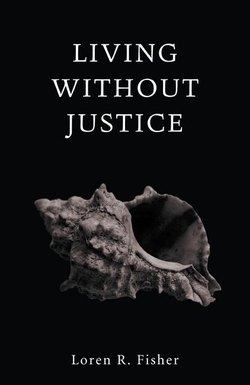Читать книгу Living without Justice - Loren R. Fisher - Страница 8
1
ОглавлениеThe day I met Khety—a scribe and teacher from Egypt—is a day that I will always remember. As I look back, I realize my life changed course that day. I was about fourteen at the time. Khety was in Jerusalem interviewing for a teaching position in the academy. My father brought him to our home for dinner, and I remember asking him what Egyptians would serve at such a dinner. He gave us a typical menu using the Egyptian words and showed us how these words were written. From that moment my mother and I became interested in the Egyptian language. Meeting Khety was only one of the great moments I experienced growing up in Jerusalem, but it was a pivotal moment. I fell in love with the Egyptian language and culture, and this has placed its mark on my teaching and writing at The Jerusalem Academy. This is what makes the academy such an interesting place: there are teachers and students from many other cities, and there is always an air of excitement surrounding new discoveries, foreign news, or new translations of foreign literature.
My father has mentioned on several occasions that he learned a great deal about foreign countries from some of our teachers, but he also said that some of his most interesting information came from people who were working in Jerusalem. When David’s palace was being constructed, he used many workmen from Tyre. Father talked with them about Tyre, about the ships that came to Tyre, and about the Egyptians and others who were just passing through. He also talked with David’s mercenary guards, the Cherethites and Pelethites, who were from Crete and other islands in the far west, as were the Philistines. He noted, however, that many of the guards knew nothing about Crete or the islands, because their grandparents had arrived in this country with the invasions of the Sea Peoples about two hundred years ago. Some of them were born and raised at Beth-shan where the Sea Peoples had been mercenaries for many years, going back to the time of the Egyptian rule at Beth-shan. The ones from Beth-shan did know something about Crete, because their ancestors had kept alive some of their traditions. It is clear that these people have made some contributions to our own language, that is, the language of Canaan. One example is our use of their word seren, meaning, “lord” or “ruler.” But my father says that the most important thing he has learned from all of these contacts is that all of us in our world—from Babylon to Crete and from Ugarit to Egypt—have a common cultural background. At times, even during periods when we are enemies, we all seem to remember, to write, to tell stories, to celebrate, and to worship in ways that reveal this common background. This common background does not mean that individual countries cannot make important and new contributions, but new contributions always have a world of old traditions to overcome—both foreign and local.
The location of the academy in Jerusalem is also important. Other academies in places like Tyre or ancient Ugarit probably receive information as to recent events before we do, but our weather, especially in the summer, is so much better for our work. The inhabitants of coastal cities have to endure hot and muggy days in the summer while at the same time our thin air is invigorating. True, they have the sea to extend their horizons, but we have the exciting views from the mountains. When looking east from the Judean mountains and down toward the Salt Sea, I have often marveled at how the layers of dirt and rock have been twisted and turned in past ages. This landscape is so different from the horizontal layers of earth that make up the lowlands to the west or can be seen in the Egyptian hieroglyph for earth (Egyptian ta’ represented by a horizontal bar). The sea seems so constant, but the mountains cause one to think about the changes that have occurred in the story of our earth. Living in Jerusalem has made me aware that not only do people change, but the earth changes as well.
So the academy and Jerusalem are important to me; I love them dearly. This is not to say that things are perfect here. In the city we have to be aware of the presence King David and his administration, even his prophets and priests. Especially the priests are difficult, and I must say that some teachers and students in the academy are conservative and always against any change or new thought. Such members of our community do not learn anything from our contacts with others or our mountains. They live in fear of King David, his priests, and his God, and their lives are dull and unrewarding. Among the minority, who are aware of our international setting and the opportunity we have to contribute something new to our world, there is a spirit of adventure, and that makes for an interesting and meaningful life.
